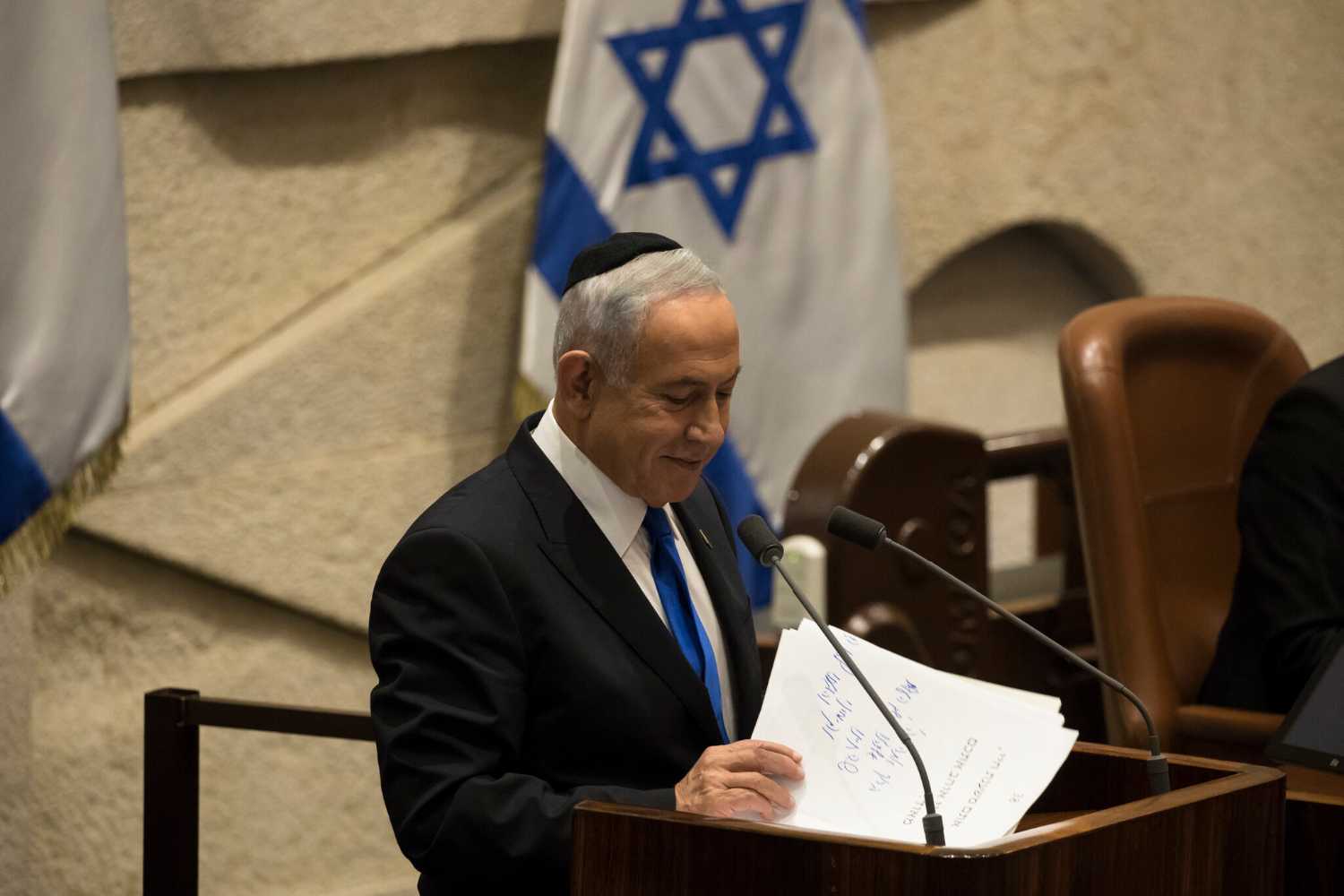Israel is not a democracy
Posted Monday, 15 Sep 2025 by Jørgen Jensehaugen

Can we continue to call Israel a democracy? The answer is no, and paradoxically enough, neither electoral defeat for Netanyahu nor a halt in the Gaza war will change this. Far more fundamental change is necessary.
Before the war in Gaza started in the wake of 7 October 2023, political debate in Israel was dominated by plans for legal reforms put forward by the Israeli prime minister, Benjamin Netanyahu. Put simply, people on one side of the debate wanted to maintain the principle of separation of powers, preserving the judiciary’s independence from political interference, while those on the other side wanted to hand more power to elected politicians.
The type of reform that Netanyahu tried to implement triggered huge opposition, with thousands of Israelis protesting week after week.
According to recognized ways of measuring democracy, such as those used by V-Dem and Freedom House, such a reform could lower a country’s liberal democracy score. Similar reforms in countries such as Hungary and Turkey have had a serious impact on those countries’ status as democracies. The Israeli government has also implemented other measures that typically reduce a country’s liberal democracy score. For example, it has curbed NGOs’ independence and restricted press freedoms.
Over time, Israel’s democratic rating has suffered a steady decline. According to Freedom House, Israel now scores 73/100, compared with 80/100 in 2017. Norway’s lowest score in the same period was 98. According to V-Dem, Israel lost its status as a ‘liberal democracy’ in 2024.
The decline in Israel’s status as a democracy is cosmetic. A far more serious problem lurks behind the façade. If we include this problem in our accounting, Israel is not a democracy. In fact, it is a long time since the country has been a democracy, but now the problem can no longer be ignored.
This occupation is not an exception
The premiss that Israel is a democracy rests on two suppositions: its population has the right to vote; and its elections are meaningful. The second supposition is correct: Israel does hold regular elections. And although it is easy to think that Netanyahu always wins, the opinion polls do fluctuate. Difficult questions about who can succeed in building a political coalition, and which parties get past the electoral threshold, are decisive for what kind of government the country gets.
The first supposition, however, is only half correct. And half a democracy is not a democracy.
Talking about Israel as a democracy is problematic when we are not clear what we mean by Israel. Since 1967, Israel has occupied the West Bank and Gaza. Between 2005 and 2023, Israel had withdrawn from Gaza, but it has now returned as an occupying force on the ground there too. East Jerusalem and the Golan Heights were annexed illegally by Israel.
Both V-Dem and Freedom House treat the occupied areas as outside the state of Israel and accordingly they do not form part of their bases for assessing Israel’s democratic status. The result is a very distorted picture. Unfortunately, the debate about Israel’s liberal democratic values and the debate about the occupation often occur in separate spheres. This cannot continue.
Only by looking at these questions together can we determine the true nature of the Israeli state. Because the occupation is not the exception. After nearly 60 years, the occupation is the norm. The occupation is Israel.
What is Israel’s population?
Israel has approximately 10 million citizens. These citizens are eligible to vote or will be once they turn 18. But there are a great number of additional people who live under Israeli control.
Approximately 350,000 Palestinians live in the annexed territory of East Jerusalem. Although these people live within the borders of Israel, only a tiny number are Israeli citizens. Accordingly, almost all these Palestinians have far fewer rights and legal protections than their Israeli neighbours.
A further 3 million Palestinians live in the occupied West Bank as a whole. They live under Israeli military control, and although some of the areas (Area A and to some extent Area B) are administered by the Palestinian Authority, it is obvious who is really in charge.
In the West Bank, including East Jerusalem, there are also approximately 700,000 Israeli settlers. The settlers are Israeli citizens and have full rights, voting rights and legal protections, even though they live outside the internationally recognised borders of Israel.
The fact that almost 10 percent of Israel’s population live outside its internationally recognised borders but are nonetheless treated as part of the state of Israel, shows how Israel’s borders in reality are “between the river and the sea”. There is an ongoing debate in Israel as to whether it should annex some or all of the West Bank, but in practice it did so long ago.
A further 2 million Palestinians live in Gaza. It is an insult to the reality on the ground even to attempt to describe Israel’s treatment of Gaza’s population using words such as rights and legal protection.
In the annexed Golan Heights, there are a further 20,000 Syrian Druze who are not Israeli citizens. It is true that they were offered citizenship, but they did not want it, because they consider themselves to be Syrians.
Within the areas over which Israel exerts sovereign control, there are 10 million people who have full rights and 5.5 million who do not have citizenship and who lack access to the rights enjoyed by Israeli citizens. This means that only 70% of Israel’s population has the right to vote or to become eligible to vote at 18 years of age.
The International Court of Justice (ICJ) is clear in its assessment of how Palestinians are treated under the occupation: “[T]he regime of comprehensive restrictions imposed by Israel on Palestinians in the Occupied Palestinian Territory […] constitutes systemic discrimination based on, inter alia, race, religion or ethnic origin.”
The ICJ held off from using the word apartheid, but “systemic discrimination” is not much better. And this is exactly the same logic that lies behind the many heavyweight reports that have chosen to use the term apartheid, such as those from Amnesty, Human Rights Watch, B’Tselem and Al-Haq.
Two exit routes
The next Israeli election will take place no later than October 2026. At that point, Israeli citizens may vote Netanyahu out. That will still not make Israel a democracy.
There are only two ways that Israel can achieve democratic status. Either the occupation must end, so that Israel no longer has control over Palestinians’ lives, or Israel must offer everyone living under its control citizenship and the right to vote.
For Israel, this represents a choice between two evils, but it is time to accept that Israel can only be considered a democracy if it chooses one of these alternatives.
Democracy is not measured by the rights of a country’s privileged population. It is measured according to the rights of its population as a whole.
- Jørgen Jensehaugen is Research Professor at PRIO
- This text was first published in Norwegian by Panorama Nyheter
- Translation from Norwegian: Fidotext










